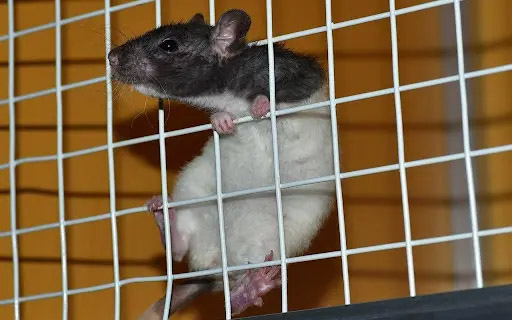How to Prevent Unwanted House Guests


Imagine enjoying a cozy evening at home when suddenly you see a furry intruder running across the floor. Rodent infestations are a common problem in the U.S., with about 21 million homes dealing with these unwelcome guests. As rodents are drawn to your home’s appealing safety and comfort, ensuring year-round protection is essential. Here’s extensive insight into their hazards, tell-tale signs to look out for, and practical rodent prevention tips.
As the largest mammal group with about 1500 species, it’s likely you've encountered rats, mice, raccoons, opossums, and squirrels exploring your home or compound. While most are harmless, they can be a menace and pose several serious potential risks. These hazards include:
Rodents are notorious for leaving a trail of destruction wherever they dwell. Armed with sharp teeth, the creatures revel in chewing through various materials, including wood, plastic, paper, and electrical wires. This behavior can weaken your home’s structural integrity.
Exposed electrical wires are prone to short-circuiting and increase the risk of electrical fires. Modern construction often relies on plastic pipes for plumbing and piping. They can easily damage these pipes, leading to in-house floods and gas leaks that further devastate your property.
In addition, they relish gnawing on your carefully stored clothes or textiles when building nests or looking for food. The extent of property damage will only worsen if the invaders are left unchecked.
Beyond physical damage, rodents are notorious disease carriers, posing a significant health risk to all home occupants. According to the Centers for Disease Control and Prevention (CDC), rodents can spread illnesses through food contamination or direct contact with rodent droppings, urine, or bites. These diseases include:
The rodents also carry mites, ticks, fleas, and other vectors that can indirectly spread diseases to you and your pets. Health effects range from flu-like symptoms, and allergies to more severe, life-threatening conditions.
While the tangible damages are concerning, you shouldn’t underestimate the emotional toll rodents cause. The constant fear of encountering these elusive creatures scurrying about can lead to heightened stress and anxiety. In addition, the thought of sharing your living space with disease vectors can be traumatizing, impacting your well-being.
According to a survey by the National Pest Management Association (NPMA), about one-third of U.S. residents experience rodent issues in their households. These extremely adaptable critters can exploit numerous entry points to access your home. Knowing how and where to locate them is essential for effective rodent control, whether it's the crafty house mouse, the agile roof rat, the elusive squirrel, or the resourceful raccoon.
You can implement numerous strategies to free your home from these invasive creatures. Start by installing rat traps or bait stations strategically in areas with high rodent activity. You can consider using rodenticide baits containing anticoagulants with the mouse traps for humane and efficient results.
Properly disposing of garbage or food waste and maintaining cleanliness in spill-prone areas further limit available food sources. In addition, you can implement these preventive measures tailored to specific vulnerable areas
Understanding how to protect your home is crucial as rodents can significantly threaten your property and health.

Coverage not available in CA, WA and HI